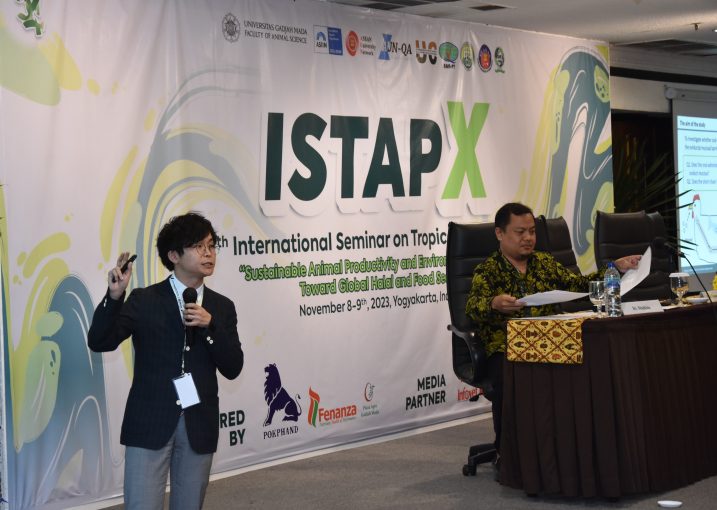
Animal production in recent decades has been increasing dramatically, to satisfy the demand of an ever-growing human population and economy. However, this rapid growth has also led to a rise in the environmental impact associated with animal production. Indeed, animal farming produces a large amount of waste, contributes to deforestation and the loss of habitats, and generates to various problems including stress and diseases. This is problematic as it leads to a greater demand for land and other resources, further exacerbating the issue of food security. Moreover, animal farms can be relatively inefficient at utilizing available resources due to their reliance on conventional agricultural practices, such as the use of extensive arable land and large numbers of poor-quality pastures and forages for feeding their animal. In addition, the demand of halal food is increasing sharply due to the spread of Moslem population. These issues are interesting to be intensively discussed by various experts in related fields dealing with sustainable animal productivity and environmental footprint toward global halal and food security.
The 10th International Seminar on Tropical Animal Production (ISTAP X) organized by Faculty of Animal Science, Universitas Gadjah Mada which was successfully held on 8-9 November 2023 foresees many discoveries in animal science research and other related areas. The event main purpose was to develop pilot projects focused on more efficient and sustainable animal production systems, specify the evidence based on research and experiences of community, and communicating these with a view to inspiring further implementation. This year’s ISTAP is participated by 117 participants from 7 countries: Indonesia, Thailand, Philippines, Vietnam, Saudi Arabia, Bangladesh, and Japan.
As the demand for animal-based products continues to rise, there is a pressing need to address the environmental footprint of livestock farming, including issues such as greenhouse gas emissions, land use, and water consumption. “Sustainable Animal Productivity and Environmental Footprint Toward Global Halal and Food Security” highlights the innovative strategies, technologies, and best practices that can harmonize the productive capacity of livestock with environmental conservation, thus offering a path toward a more sustainable food system.
Dean Faculty of Animal Science UGM, Prof Budi Guntoro, delivered about what experts could do in relation to animal productivity and environmental issues. “Contributions from experts in various fields, including agriculture, animal science, food technology, and environmental science, provide a holistic perspective on the challenges and opportunities in the realm of sustainable animal productivity in Halal food production. It explores innovative techniques for improving animal health and welfare, optimizing resource utilization, and reducing the ecological footprint of food production,” said Prof Budi Guntoro.
Vice Rector for Human Resources and Finance UGM, Prof. Supriyadi, M.Sc., Ph.D., CMA., CA., Ak. also gave remarks and encourage the participants to be activelty participated in the seminar. “It is paramount that we explore innovative and sustainable ways to meet these demands without compromising the well-being of our planet or the animals that play a vital role in our food production systems. Therefore, please make the most of this seminar, build connections, and take away knowledge that can be applied in your respective fields. Together, we can shape a more sustainable, secure, and human future for our world,” said Prof Supriyadi.
ISTAP X was divided into two sessions. The first session was a plenary session (Plenary Sessions) featuring resource persons namely Prof. Matthias Gauly (Free University of Bozen-Bolzano, Italy), Prof. Metha Wanapat (University of Khonkaen, Thailand), Prof. Heather Burrow (University of New England, Australia), Dr. Awis Qurni Sazili (Universiti Putra Malaysia, Malaysia), Dr. Maja Slingerland (Wageningen University & Research, The Netherlands), Prof. Nanung Agus F. (Universitas Gadjah Mada, Indonesia), and Dr. Jasper Heerkens (Aeres University of Applied Sciences, Netherlands). The second session was a parallel session where participants discussed the research results.
This seminar is expected to be a valuable sharing for researchers, industry professionals, and anyone interested in the pivotal intersection of Halal food production, sustainable animal productivity, and environmental responsibility. Also, it can encourages a deeper understanding of the complex and multifaceted relationship between food security, Halal practices, and environmental sustainability, while offering practical insights to address the global challenges. (Secretariat/Prisil)
